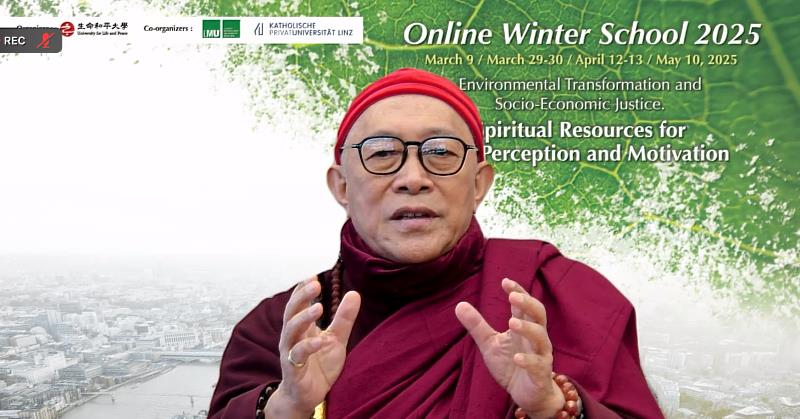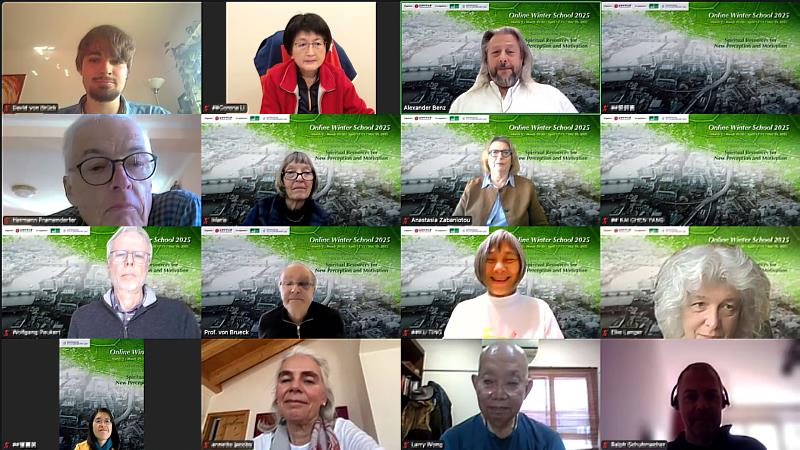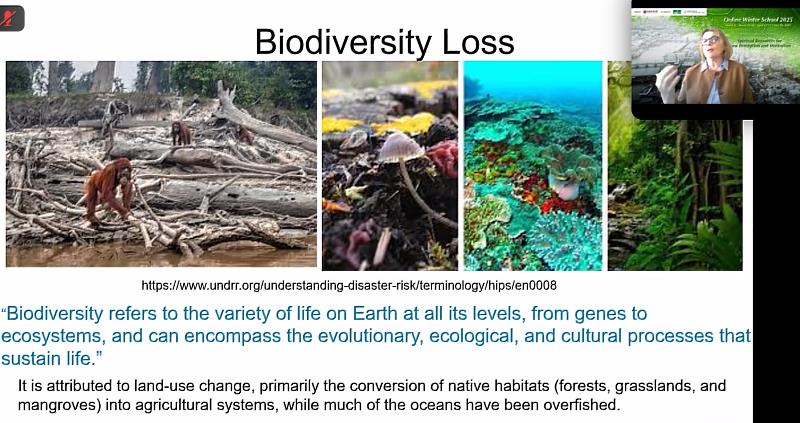University for Life & Peace Winter School 2025 Focuses on Spiritual Ecology
(中央社訊息服務20250317 17:01:21)The Ling Jiou Mountain University for Life & Peace (ULP) commenced its 2025 Online Winter School program on March 9, gathering scholars, experts, and research students worldwide to explore innovative topics bridging sustainability and inner awakening. Discussions spanned diverse fields, including psychology, technology, policy-making, socio-economic systems, philosophy, and spirituality.
ULP founder, Grand Master Hsin Tao, emphasized the program's focus on "spirituality" to address contemporary ecological issues and their underlying causes. Participants are encouraged to establish ethical frameworks, utilize technology wisely, and contribute to solutions based on the principles of "Respect for the Value of Existence, Tolerance of Living Environment, and Love in Giving What is Needed."
The Winter School's international program, initiated in Yangon, Myanmar, in 2019 and transitioned online in 2021, integrates professional approaches with spiritual ecology perspectives. This year’s theme, "Environmental Transition and Socio-Economic Justice: New Perspectives and Dynamics of Spiritual Resources," aims to generate research papers on consciousness and awareness, healing the Earth, and scientific and technological practices.
Key discussions at the program's outset, led by Professors Michael von Brück and Alexander Benz from Ludwig Maximilian University of Munich, and Professor Anastasia Zabaniotou from Aristotle University of Thessaloniki, centered on the concept of "PERMA culture," spiritual ecology's construction, and its global implementation for sufficiency, fairness, and ecological balance.
Professor Zabaniotou highlighted the "poly-crisis" facing humanity, including the "triple planetary crisis" of climate change, biodiversity loss, and waste pollution, exacerbated by the impacts of the Anthropocene. She analyzed the relationship between spiritual ecology and sustainable development, advocating for a shift from anthropocentrism to eco-centrism and introducing the concept of "Double Decoupling" to separate economic growth from resource consumption and environmental impact.
Professor von Brück presented "Spiritual Ecology as Ecosophy" (Ecological Philosophy), exploring the discovery of untapped consciousness resources through spiritual reflection to drive ecological transformation. He stressed the importance of human motivations, cognitive processes, and social mechanisms in finding effective solutions to the environmental crisis, advocating for a move beyond "quantitative growth" toward "qualitative improvement" for a more resilient and sustainable social model.

Professors emphasized that addressing current ecological challenges requires combining spiritual transformation and systemic thinking. "Spiritual Ecology" offers a new perspective, transcending short-sighted development models and helping humanity re-establish a harmonious, symbiotic relationship with the Earth, thereby driving true ecological transformation. The University for Life and Peace (ULP) will continue to promote "Spiritual Ecology" education, foster global dialogue, and contribute to the sustainable development of the world.







